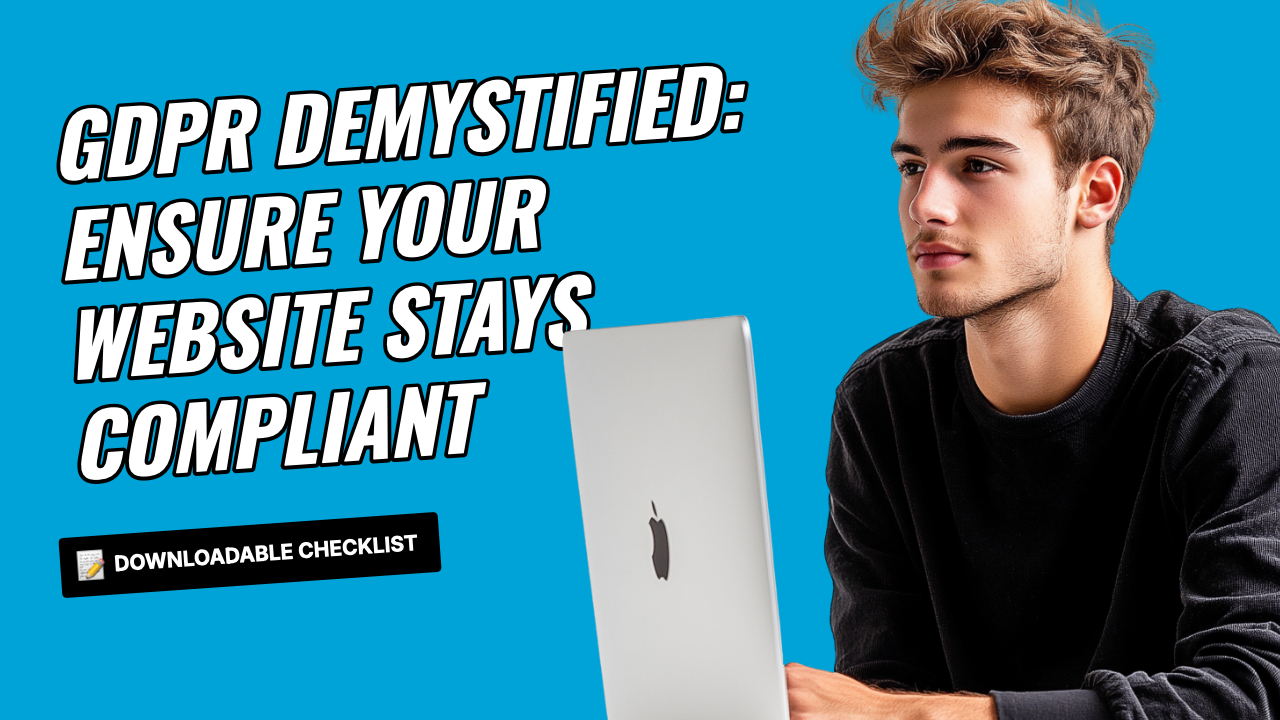
What is GDPR and Why Does It Matter?
The General Data Protection Regulation (GDPR) is a comprehensive data protection law enacted by the European Union (EU) that took effect on May 25, 2018. Its primary aim is to enhance individuals' control and rights over their personal data and to simplify the regulatory environment for international business by unifying the regulation within the EU. For online businesses, GDPR compliance is not just a legal obligation; it’s a commitment to customer trust and transparency.
Key Principles of GDPR
GDPR is built on several core principles that govern the processing of personal data. These principles include:
1. **Lawfulness, Fairness, and Transparency**: Personal data must be processed lawfully and transparently.
2. **Purpose Limitation**: Data should be collected for specified, legitimate purposes and not further processed in a manner incompatible with those purposes.
3. **Data Minimization**: Only data necessary for the processing purpose should be collected.
4. **Accuracy**: Personal data must be accurate and kept up to date.
5. **Storage Limitation**: Data should not be kept in a form that allows identification of data subjects longer than necessary.
6. **Integrity and Confidentiality**: Personal data must be processed securely to prevent unauthorized access.
Who Needs to Comply with GDPR?
GDPR compliance is relevant to any business that processes personal data of EU citizens, regardless of the business's location. This means that even if your online business operates outside of the EU, if you collect data from EU citizens, you are required to comply with GDPR. This expansive reach emphasizes the importance of understanding GDPR for businesses in a globalized digital economy.
Steps to Achieve GDPR Compliance
Achieving GDPR compliance involves several key steps:
1. **Conduct a Data Audit**: Identify and document the personal data you collect, how it is used, and where it is stored.
2. **Update Privacy Policies**: Ensure your privacy policies are clear, concise, and compliant with GDPR requirements, including the rights of the data subjects.
3. **Obtain Explicit Consent**: Revise your processes for obtaining consent from users, ensuring that it is explicit, informed, and freely given.
4. **Implement Data Protection Measures**: Introduce technical and organizational measures to ensure the security of personal data.
5. **Train Your Staff**: Educate your employees about GDPR and their roles in maintaining compliance.
The Role of Data Protection Officers (DPO)
For many organizations, appointing a Data Protection Officer (DPO) is essential. A DPO oversees data protection strategy and implementation to ensure compliance with GDPR. DPOs help in training staff, conducting audits, and serving as a point of contact for individuals whose data is processed. While not all businesses are required to appoint a DPO, doing so can greatly enhance your compliance efforts and provide expert guidance.
Consequences of Non-Compliance
Failing to comply with GDPR can lead to severe consequences, including hefty fines of up to 20 million euros or 4% of your annual global turnover, whichever is higher. Beyond financial penalties, non-compliance can damage your brand's reputation and erode customer trust. In today’s digital marketplace, trust is paramount; thus, investing in GDPR compliance is an investment in your business's future.
Benefits of GDPR Compliance
While GDPR compliance may seem daunting, it comes with numerous benefits:
1. **Enhanced Customer Trust**: By being transparent about data usage, you build stronger relationships with your customers.
2. **Improved Data Security**: Implementing GDPR practices often leads to better data security measures, protecting your business from breaches.
3. **Competitive Advantage**: Businesses that prioritize data protection can differentiate themselves in the marketplace, attracting more customers.
4. **Streamlined Operations**: A better understanding of data management can lead to more efficient processes and improved decision-making.
Conclusion: The Way Forward
In conclusion, GDPR compliance is not merely a legal requirement but a necessary strategy for online businesses. As digital landscapes evolve, so too do the expectations of consumers regarding their data privacy. By understanding and implementing GDPR, you not only protect your business from legal repercussions but also foster a culture of trust and responsibility. Embrace GDPR compliance as a vital component of your business strategy and watch your brand thrive in a data-driven world.
